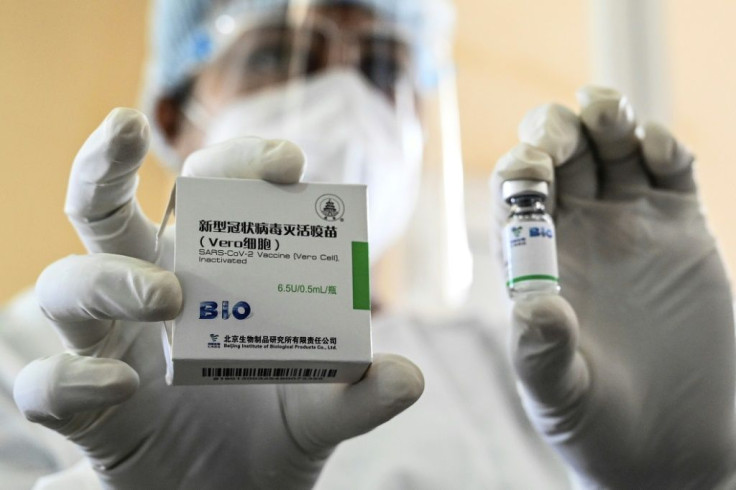UAE Approves China’s Sinopharm COVID-19 Vaccine For Kids 3-And-Up
KEY POINTS
- The UAE said its decision comes after clinical trials and extensive evaluations
- The UAE has fully vaccinated at least 71% of its population
- A recent study in Sri Lanka found that Sinopharm had a weaker antibody response against the Delta variant
The United Arab Emirates on Monday announced that it would start administering China’s Sinopharm COVID-19 vaccine to children between the ages of 3 to 17.
In a tweet, the UAE cited the health ministry and noted that its decision comes after clinical studies and extensive evaluations, though they did not provide further details about the results of the assessments.
UAE authorities in June said they will monitor the immune response of 900 children aged 3 to 17 who participated in a trial administering the Sinopharm vaccine. According to the Abu Dhabi Media Office, the trial is part of the government’s preparation to vaccinate its children, as reported by Reuters.
The recent decision is expected to help the Gulf Arab state ramp up its vaccination program against COVID-19.
The UAE has one of the world’s highest immunization rates. As of Sunday, at least nine million residents or 78.95% of the country’s population had received at least one dose. Nearly 71% had been fully vaccinated against the novel coronavirus.
The UAE has recorded more than 682,000 cases and 1,951 coronavirus-related deaths since the start of the pandemic, according to data from Johns Hopkins University.
Recently, a group of scientists from the University of Sri Jayewardenepura, the Colombo Municipal Council in Sri Lanka, and the University of Oxford in the United Kingdom found that the Sinopharm vaccine produced a weaker antibody response against the more contagious Delta variant, first detected in India.
Antibody levels in people who received the Sinopharm shot were 1.38 times lower against the Delta variant compared to the original strain of the virus. The antibody levels also showed a 10-fold drop against the Beta variant, first detected in South Africa.
The researchers also noted that they found no significant difference in the antibody levels detected from the blood samples of vaccinated participants compared with those who had recovered from a COVID-19 infection.
The study, dated July 19, was published on the preprint server medRxiv. It is yet to be peer-reviewed.
In late July, the Chinese government announced that it is partnering with BioNTech to develop an mRNA booster vaccine for people who have been fully vaccinated with Sinopharm and Sinovac.

© Copyright IBTimes 2024. All rights reserved.






















